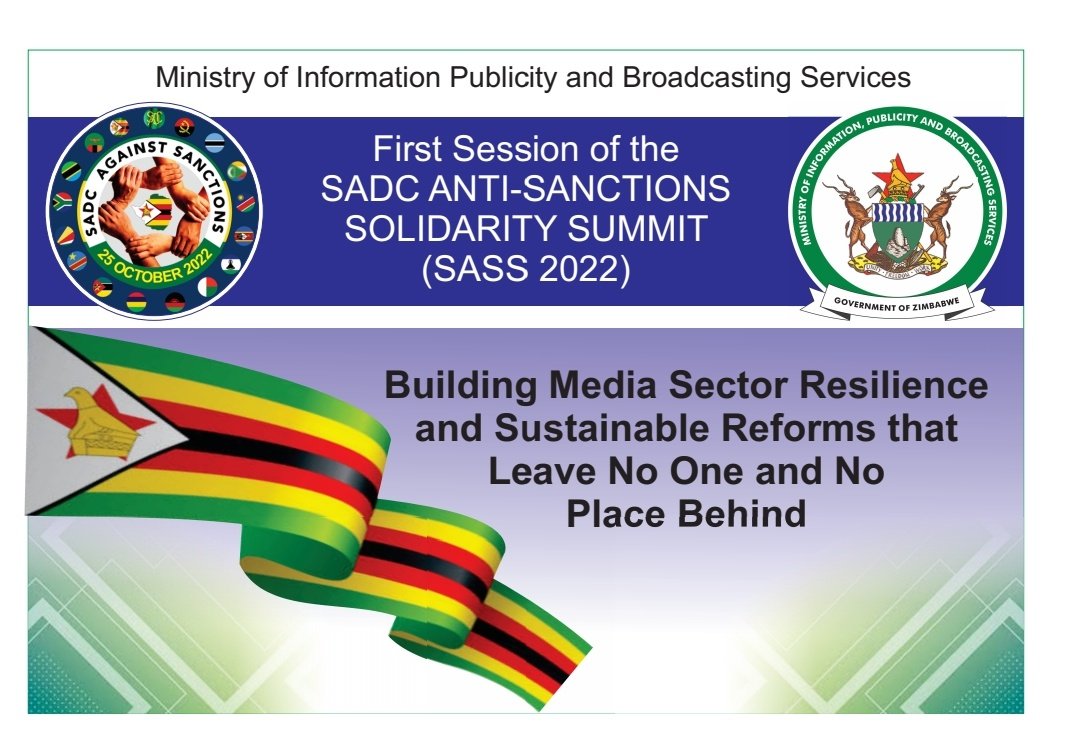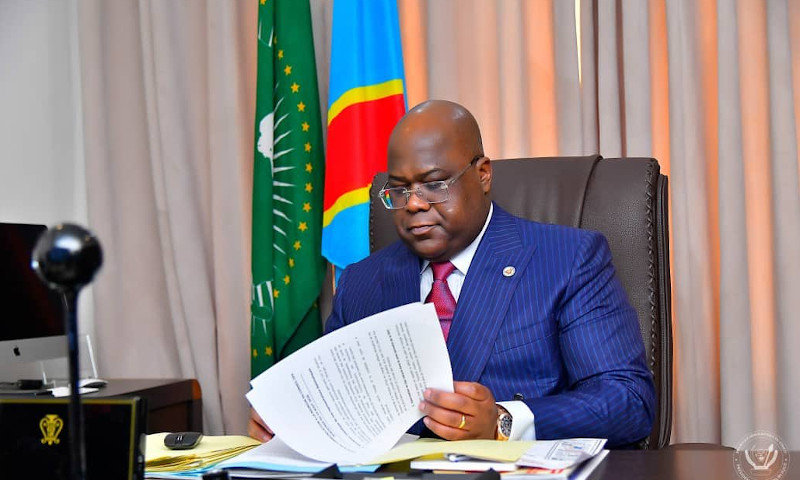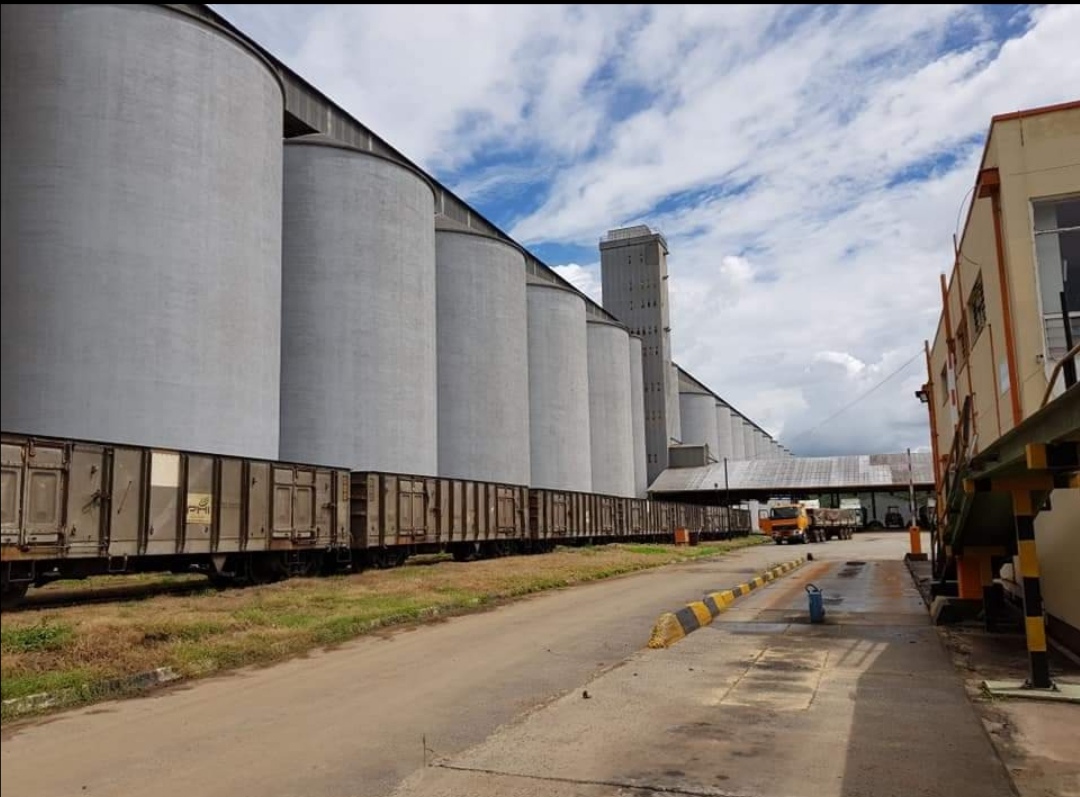Zim castigates West over sanctions, bullying
Share

Harare (New Ziana) – The sanctions imposed on Zimbabwe by Western countries are nothing more than a bullying tactic meant to coerce Zimbabwe into abandoning its sovereign decisions, which should ordinarily be respected, a Cabinet Minister has said.
The US, along with the European Union and Britain imposed sanctions on Zimbabwe over two decades ago to force the government to abandon its land reforms in which excess white-owned farmland was compulsorily acquired to resettle landless blacks to economically empower them.
The sanctions, targeting both the economy and individual Zimbabweans seen as central to decision-making in government, are estimated to have cost the country up to US$100 billion in lost economic opportunities.
Speaking on the eve of the SADC Anti-Sanctions Day on October 25, Information, Publicity and Broadcasting Services Minister Monica Mutsvangwa said Zimbabwe will continue to fight for its sovereignty which is being undermined by the sanctions.
“Indeed, our nation is indebted for the support from the region since the war of liberation. We are grateful that in the region we are good brothers and sisters who fight together. The resolutions of this meeting are meant to bring out key messaging themes for the country and the region as we together fight against bullies who when they fail to put their ideas across, resort to the weaponization of the economy in order to mobilize people against their sovereign government,” she told the inaugural SADC Anti-Sanctions Summit (SASS) in Harare.
“May I remind you ladies and gentlemen that the genesis of the illegal sanctions is the national aspiration for Zimbabwe land re-distribution. The land was the core of the grievances of the liberation struggle. Without the land the Independence of the people would be incomplete. We speak with pride and satisfaction that Zimbabweans are now the owners of their land.
“To this end, Zimbabwe remains under sanctions due to the reclamation of property rights by the people of Zimbabwe. Therefore, when we call for the sanctions to go, we are simply demanding that there be justice and respect for post-colonial states by merchants of neo-imperialism. When we demand the unconditional removal of the illegal sanctions we are merely reasserting our sovereign dignity.”
As such, Mutsvangwa said the local media had a duty to unmask the untruths told by the western aggressors about the real impact of their sanctions on Zimbabwe.
It was only last week, after years of downplaying the true impact of its sanctions regime on Zimbabwe, that the United States finally admitted that its economic restrictions were scaring away potential investors from Zimbabwe.
The United States exercises its sanctions programme on Zimbabwe through the Zimbabwe Democracy and Economic Recovery Act which, among other things, forbids American banks from processing transactions on behalf of Zimbabwean companies and at times individuals who are not even on the sanctions list.
The US and its local acolytes have over the years blamed the economic challenges that were brought on by the sanctions to supposed corruption and mismanagement.
In light of that, Mutsvangwa said: “Under the Second Republic the media has a special role to inform and educate the nation on the misinformation and disinformation on sanctions peddled by the West and its allies that these sanctions are targeted to a few individuals. The media must unmask this big lie and expose the reality on the ground that the sanctions are choking. The lies are meant to turn us against each other and derail the development agenda.”
“In this regard I implore the media to conduct investigative journalism to expose the ways and the manner in which Zimbabweans have been affected by this evil. I also urge the media to take an editorial stance against illegal sanctions. This is a time when we need journalism that repels the propaganda from the West that seeks to divide and cause disunity on Zimbabweans,” she said.
Meanwhile, the inaugural edition of SASS 2022 ran under the theme: “Building Media Sector Resilience and Sustainable Reforms that Leave No One and No Place Behind.”
Among other things, SASS 2022 is meant to build global solidarity with Zimbabwe against the sanctions, and come up with a communications strategy to campaign for their removal.
New Ziana









